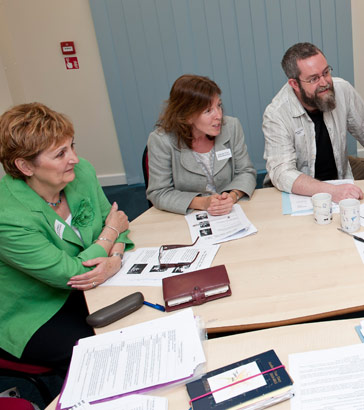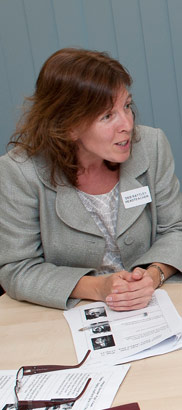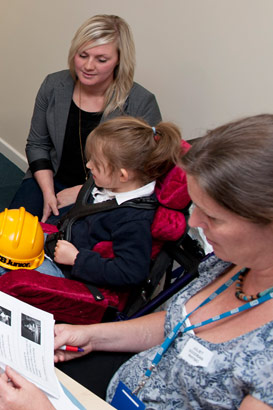mental health teams (CAMHS)
CAMHS teams and Community Mental Health Teams (serving adults) vary in personnel (beyond having a consultant psychiatrist at the hub), but they are likely to involve the following:
- Child and adolescent psychiatrists;
- Child clinical psychologists;
- Child psychotherapists;
- Family therapists;
- Art therapists;
- Children's and/or community psychiatric nurses (CPNs);
- Occupational therapists;
- Social workers;
- Pharmacists.
teams work?

work in:
- CAMHS clinics;
- Specialised in-patient units;
- Child and family services;
- Young people's services;
- Outreach services (eg in schools, but this is rare).

A large part of a child psychiatrist's work is to identify and assess the
mental health problem and advise on interventions. Most of the work they
do with children and their families is done through out-patient appointments
while the child continues to live at home. They are sometimes asked to provide
expert opinion to the courts about child welfare issues.
Referral routes to a psychiatrist – usually through a child's GP but sometimes
through a health visitor, school doctor, clinic doctor, paediatrician, educational
psychologist or social worker, if they agree a referral to a psychiatrist
is needed.
Psychiatrists work as part of a multidisciplinary service that includes
other child mental health professionals. Commonly, there are shortages,
so the availability of trained professionals in particular disciplines and
available funding will affect a team's make-up.
Clinical psychologists
Occupational therapists
Psychotherapists
Art therapists
Cognitive therapists
Community psychiatric nurses
Nurse therapists
Social workers
Pharmacists
Return
Return
Art therapists have undergone specialist training in a form of psychotherapy which uses art-making within a therapeutic relationship or group, as a means of assisting a child or adult in discovering, exploring and clarifying their thoughts and feelings.
Cognitive therapists, trained in cognitive behavioural therapy, help people to cope with stress and emotional problems by talking about the connections between the way they think, feel and behave.
please note the last 2 paragraphs are duplicated on the art therapist and cognitive therapist pop-ups
Return
Return
Return
Community psychiatric nurses (CPNs) in CAMHS work in the community usually visiting clients in their own homes, out-patient departments or family doctors' surgeries. CPNs can help children and adults to talk through their problems and give them practical advice and support. They can also give medicines and monitor the effects of medication.
Return
Return
Return
Return
close team work

The aim is for close team work with skills of one profession knitting
in with the skills of another: 'As well as their professional skills, the
team members will have experience in understanding the distress that goes
with mental illness. They can all offer support and encouragement. By working
together, they try to make sure that the team has a clear picture of your
difficulties and strengths.'
They can then plan the right help for the individual. Staff work closely together
and so they often learn a lot from each other. You may find that nurses
can deal with many social and work-related problems and that occupational
therapists and social workers know something about medication.
- Does your school have access to a multi-disciplinary team?
- Do you think your school has sufficient access and input when the team works in
your school? - How might your school improve the dialogue between the multi-disciplinary team, the families and your pupils?